SLOVAK PM Fico REFUSES to visit UKRAINE after invite from Zelensky
In a surprising turn of events, Slovak Prime Minister Robert Fico has publicly rejected an invitation from Ukrainian President Volodymyr Zelensky to visit Ukraine. This move has sparked a wave of debate and speculation within the international community, particularly within Europe, as it highlights Slovakia’s shifting stance on the ongoing conflict in Ukraine. The rejection comes at a time when the European Union and NATO have largely rallied behind Ukraine, offering military, financial, and diplomatic support in its war against Russia. Fico’s decision to decline the invitation is seen as an expression of his increasingly independent and critical approach to the war in Ukraine and his government’s foreign policy priorities.
Fico, who has had a long and sometimes controversial political career, is no stranger to making bold statements that challenge the prevailing Western consensus. His refusal to visit Ukraine has ignited questions about Slovakia’s role within the EU and NATO, especially in the context of ongoing tensions between Russia and the West. This decision raises significant concerns about the future of Slovakia’s foreign relations, its stance on the Ukrainian conflict, and its position within broader European geopolitics.
Background on Robert Fico and His Political Stance
Robert Fico, a seasoned political figure in Slovakia, has served as the country’s Prime Minister multiple times and is the leader of the left-wing Smer-SD party. Throughout his career, Fico has been known for his pro-Russian views and has often adopted a more cautious approach when it comes to taking strong positions on issues involving Russia. His political ideology blends social democracy with a skepticism of certain Western policies, including those of the European Union and NATO.
Fico’s government has traditionally sought to maintain a balanced relationship with Russia, particularly in economic terms, while also being a member of both the EU and NATO. However, his stance has become increasingly critical of the West’s role in the Ukrainian conflict. Fico has been vocal in expressing concerns about the escalation of the war and the involvement of Western powers, including the supply of weapons to Ukraine. His recent refusal to visit Ukraine, despite the invitation from Zelensky, reflects his desire to chart a more independent course, one that is less influenced by the pressures of EU and NATO alliances.
His rejection of Zelensky’s invitation can be seen as a continuation of his more neutral or even pro-Russian position, a stance that resonates with a portion of the Slovak electorate. Fico’s views on Ukraine contrast sharply with the overwhelming majority of EU member states, which have shown significant support for Ukraine in the face of Russian aggression. This divergence raises questions about Slovakia’s future direction in foreign policy and its alignment with EU values.
The Ukrainian Conflict and Slovakia’s Role in the EU
The ongoing war between Russia and Ukraine has had profound implications for the European Union and its member states. While many EU nations have taken a strong stance in support of Ukraine, supplying arms, humanitarian aid, and financial assistance, Slovakia has maintained a more measured approach under Fico’s leadership. Slovakia, a neighboring country to Ukraine, has been caught between its commitments to the EU and NATO and its historical ties to Russia.
Slovakia has historically relied on Russia for energy resources, particularly natural gas, which has made its position on the conflict more delicate. While Slovakia is a member of NATO and the EU, both of which have largely supported Ukraine’s fight against Russian aggression, Fico’s government has expressed concerns about the long-term consequences of the conflict. Some analysts argue that Fico is navigating the geopolitical situation with caution, trying to avoid alienating Russia while still maintaining Slovakia’s commitments to Western alliances.
Fico’s rejection of Zelensky’s invitation comes amid increasing tension within the EU regarding the war in Ukraine. Some Eastern European countries, particularly those with strong historical ties to Russia, have been more cautious in their support for Ukraine, voicing concerns about the economic and security repercussions of the war. Fico’s refusal to engage with Ukraine at a high level suggests a potential shift in Slovakia’s foreign policy, one that might be less aligned with the EU’s consensus on Ukraine and more focused on regional interests.
The Implications of Fico’s Refusal to Visit Ukraine
Fico’s decision to refuse Zelensky’s invitation has several significant implications for both Slovakia and the broader geopolitical landscape. Firstly, it underscores the divide within Europe on how to approach the Ukrainian conflict. While much of the EU has committed to supporting Ukraine through sanctions against Russia, arms supplies, and diplomatic backing, Slovakia’s stance under Fico raises questions about the unity of the European Union on this issue.
This decision could have long-term consequences for Slovakia’s relationship with Ukraine, which has depended heavily on the support of its European neighbors during the war. Slovakia, as a member of the EU and NATO, has had to balance its diplomatic obligations with the realities of its domestic political landscape, which has some factions that are less enthusiastic about supporting Ukraine. Fico’s refusal to engage directly with Zelensky could strain Slovakia’s relations with Ukraine, particularly as the war continues to dominate European foreign policy.
Moreover, Slovakia’s stance could affect its standing within the European Union. While Slovakia has been a loyal EU member, its growing divergence from the bloc’s position on Ukraine could create tensions. Other EU member states may view Fico’s decision as a challenge to the unity of the union, especially as the EU seeks to present a united front against Russian aggression. Slovakia’s alignment with pro-Russian policies could raise concerns within EU institutions about the cohesion of the alliance and the future direction of European foreign policy.
Slovak Domestic Politics and Public Opinion
Fico’s refusal to visit Ukraine also has significant implications for Slovakia’s domestic political landscape. The decision comes amid rising nationalist and populist sentiments within the country, and Fico’s stance on Ukraine could resonate with a segment of the Slovak population that is skeptical of foreign intervention and wary of the costs associated with supporting Ukraine.
There is a growing segment of the Slovak electorate that believes the country should prioritize its national interests, which includes maintaining stable relations with Russia and avoiding any actions that might lead to further economic or security risks. This viewpoint contrasts with that of many in the West, who view Russia as an aggressor and believe that the West must support Ukraine in its fight for sovereignty and territorial integrity.
Fico’s rejection of Zelensky’s invitation could strengthen his position with voters who are critical of Western involvement in the Ukrainian conflict. Slovakia’s political landscape is marked by a divide between pro-European and pro-Russian factions, and Fico’s actions seem to align with the latter. This political positioning could be a strategic move to appeal to Slovak voters who feel disconnected from the EU’s stance on Ukraine and are wary of the consequences of deeper involvement in the conflict.
International Reactions and Future Implications
Internationally, Fico’s refusal to visit Ukraine has raised eyebrows and prompted reactions from both European allies and international observers. Zelensky’s invitation, extended to leaders from across Europe, was seen as a call for continued solidarity in the fight against Russia. Fico’s rejection has drawn criticism from pro-Ukrainian and pro-Western voices, who argue that Slovakia should stand firmly behind Ukraine in its time of need.
The European Union is likely to monitor Slovakia’s actions closely, as any sign of divergence from the EU’s unified position on Ukraine could have ripple effects on the broader European approach to the conflict. However, Fico’s decision also reflects the complex and evolving nature of European foreign policy, where national interests and historical ties often influence decisions.
As the war in Ukraine continues and its impact is felt across Europe, Slovakia’s stance under Fico’s leadership will remain a key point of discussion. Will Slovakia continue to distance itself from full support of Ukraine, or will domestic and international pressures force a shift in policy? The answer to this question will shape Slovakia’s future role in European geopolitics, its relationship with both the EU and Russia, and its influence in shaping the continent’s response to the crisis in Ukraine.
In Conclusion
Prime Minister Robert Fico’s refusal to visit Ukraine after an invitation from President Zelensky highlights Slovakia’s growing divergence from the EU’s unified position on the Ukrainian conflict. Fico’s move underscores the complexities of European geopolitics, where national interests, historical ties, and domestic politics play a significant role in shaping foreign policy. As Slovakia navigates its future in Europe, the implications of this decision will likely continue to unfold, influencing both its relationship with Ukraine and its standing within the broader European Union.
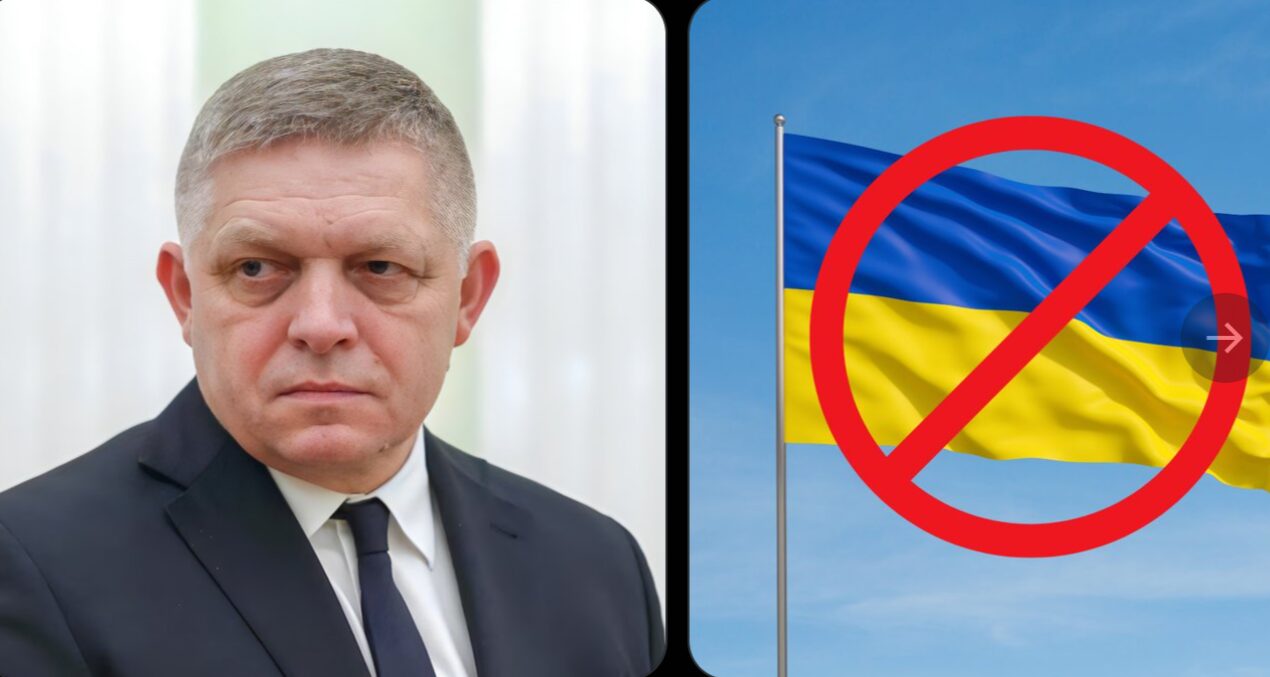
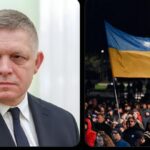



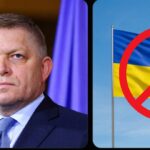

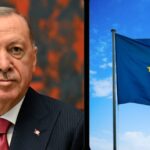
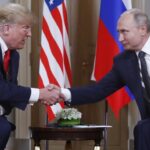








Post Comment